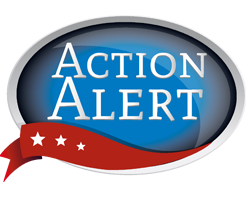 H.R.6201 - Emergency Coronavirus Measure
H.R.6201 - Emergency Coronavirus Measure

H.R.6201 - Emergency Coronavirus Measure
The House passed H.R.6201 - Families First Coronavirus Response Act, their multibillion-dollar response to the economic dislocations caused by the coronavirus outbreak, legislation that would provide emergency paid sick leave, enhanced unemployment benefits, and free coronavirus testing. Senate Majority Leader Mitch McConnell says the Senate is still waiting for the House to make “technical corrections” to the coronavirus relief bill.
The House passed H.R.6201 - Families First Coronavirus Response Act, their multibillion-dollar response to the economic dislocations caused by the coronavirus outbreak, legislation that would provide emergency paid sick leave, enhanced unemployment benefits, and free coronavirus testing. Senate Majority Leader Mitch McConnell says the Senate is still waiting for the House to make “technical corrections” to the coronavirus relief bill.
This bill authorizes and provides additional funding for various assistance programs to support the federal response to the coronavirus pandemic and assist workers facing economic hardship as a result of the virus.
Specifically, it establishes a program to provide sick and quarantined workers with two weeks of emergency paid leave, includes tax incentives to employers to provide additional sick days to their employees, and provides $1 billion in grant funding to help states manage and expand their unemployment insurance programs during the COVID-19 pandemic.
It appropriates $1.2 billion to the Agriculture and Health and Human Services Departments to provide additional nutrition assistance to affected areas and populations, including low-income seniors and their caregivers, local food banks, pregnant and postpartum women, and students who lose access to school lunch programs as a result of COVID-19-related school closures. It also grants states additional flexibility in providing nutrition aid under the Supplemental Nutrition Assistance Program (SNAP) and the Child Nutrition Program.
Additionally, the measure requires private health plans to cover diagnostic testing for COVID-19 at no cost to consumers and increases federal funding for state and territorial Medicaid costs. It provides $206 million to the Defense Department, the Veterans Affairs Department, and the Indian Health Service to cover COVID-19 testing by their health program.
Unlike the original bill, the measure clarifies that reimbursements for uninsured COVID-19 testing at diagnostic laboratories can't cover individuals receiving other testing assistance in the bill, and that Medicaid coverage only applies to COVID-19 tests. It also tightens exemptions from work search and other state unemployment assistance rules. The bill does not contain a payroll tax cut proposed by President Trump.
The measure's funds are designated as emergency spending and are therefore not subject to regular discretionary budget caps.

